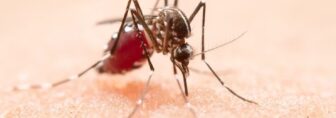How To Start A Vegan Diet? – Harnessing The Power Of Plants, A Comprehensive Guide To Embracing A Vegan Diet
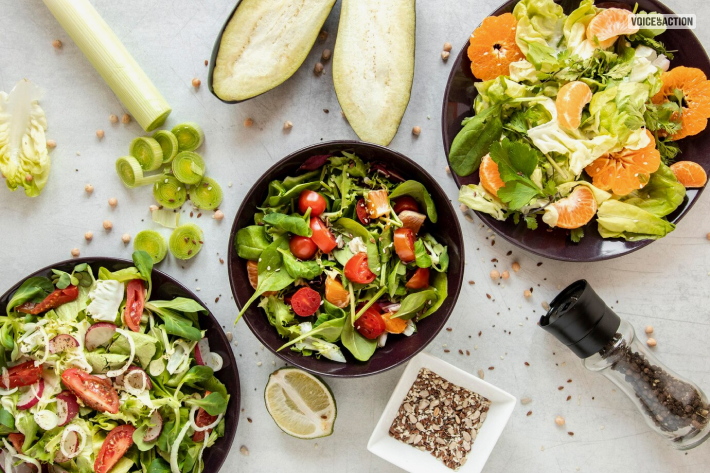
Are you up to the challenge that will change your habits and improve the world? Look no further! We invite you to a journey on how to start a vegan diet. After all, it is a fascinating way of harnessing the wondrous capabilities of plants. Especially if you are trying to learn how to be a vegan.
Here, we will disclose the advantages and pleasures of this complicated and enjoyable lifestyle. Are you hungry for change? Get ready to explore nourishing alternatives. Plus, add to your knowledge of the benefits of being vegan.
Why not see how each plant-based bite contributes to the planet’s sustainability?
From devoted vegan to an absolute vegan newbie, welcome aboard!
Today, we’re going to have a closer look at this incredible way of living a healthy life and our planet.
The time is up to unleash the boundless treasures of nature and powerfully influence them to our side together.
What Is A Vegan Diet?
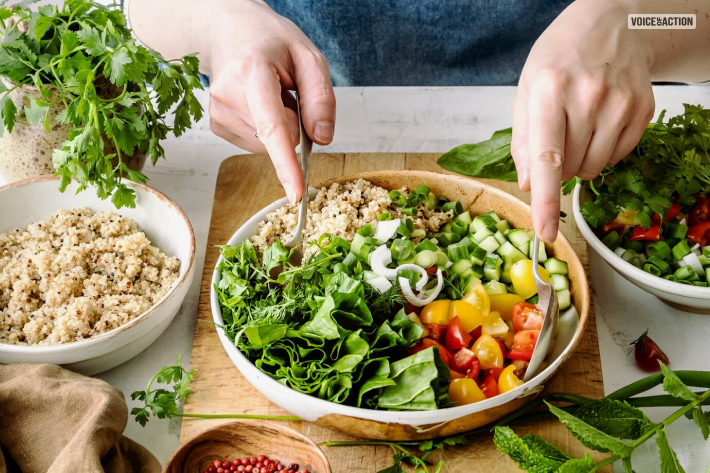
Before you understand how to start one, here is what you should know about the vegan diet.
A vegan diet doesn’t contain anything from animals, including meat, milk, eggs, and honey. Rather than purely animal products, it is plant-based and includes legumes, fruits, vegetables, grains, nuts, and seeds.
Different reasons like health issues or Animal rights considerations may trigger the transition to Veganism. No matter the real purpose, living a vegan life surely has multiple pluses for the physical body and nature.
Benefits of A Vegan Diet
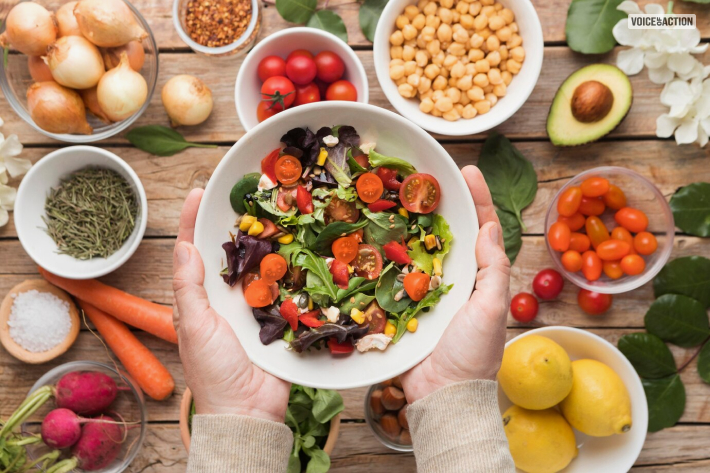
Before we get into how to start a vegan diet, let us first understand the benefits of a vegan diet.
Health Benefits
A vegan diet that you supervise carefully can easily fulfill all the nutritional needs one may have for optimal health. Vegetable proteins contain vitamins and minerals, especially folate, vitamin C, magnesium, and potassium. They are also high in fiber, promote digestion, and keep us feeling fuller over an extended period.
Research shows that those who are on the vegan diet have a lower rate of obesity than the typical meat eaters. This is because calorically restricted plant diets can also be as nutritious as calorically rich diets. Hence, keeping to a vegan diet can aid in weight reduction. Besides lessening the chances of developing chronic diseases like diabetes and heart disease.
Environmental Impact
In addition to personal health aspects, the vegan diet can positively impact environmental conservation. You can also link greenhouse gas emissions to animal agriculture as one of the leading contributors internationally. However, if we don’t use animal products in our diet, we can cut down our carbon footprint by a significant fraction.
Other than that, agricultural lands used for raising animals for consumption are also a cause of environmental degradation and dislocation of wildlife.
Animal Welfare
One of the driving forces that people choose a vegan diet is personal belief in ethical treatment towards animals. Factory farm animals often are forced to endure inhumane treatment where they are in overcrowded, unsanitary, and unbearable conditions. By replacing animal food with plant-based food, we simultaneously reduce the interest for the industries; subsequently, the number of animals intended to be raised for food will decrease.
Being vegan means making diversified choices for our health, environment, and animals. Indeed, it might seem challenging at first glance, but with good planning and adequate education, everybody can try a vegan diet. We will now explore what exactly is a balanced vegan diet. Plus, provides handy tips on transitioning easily to the new diet.
How to start a vegan diet? – Benefits of a vegan lifestyle

Alongside caring for the environment, you should also understand how a vegan diet. So, Let’s dive deeper into some fantastic benefits of living on a vegan diet.
1) Supports weight loss and general wellness alike
Among the most obvious advantages of eating a plant-based diet is a loss of extra pounds. Vegan foods are generally calorie-restricted and rich in fiber, making them a fantastic pick for weight loss and management.
We can still find research that shows that venturing into veganism can help improve health. These include lowering blood pressure, cholesterol levels, and sugar control.
2) Rich in Nutrients
This is not true despite the common misconception that vegans are susceptible to nutrient deficiencies such as lack of protein or iron. Strangely, naturally rich in vitamins, minerals, and antioxidants needed for the best body health, plant-based foods contain no fat whatsoever.
Plant sources, which have high levels of beans, legumes, nuts/seeds, and leafy greens, offer many nutrients. This helps your body to function properly.
3) Decreases risk of chronic diseases
Many studies suggest having a vegan diet can help prevent chronic conditions. For example, heart disease, type 2 diabetes, and some types of cancer. It could be related to excessive consumption of fruits and vegetables rich in anti-inflammatory substances. A stabilized plant-based diet can add gut microbiome diversification, an important factor in supporting favorable health status. (Source)
4) Better Digestive Health
The high-fiber plant-based diet will most likely contain all the ingredients to ensure the proper functioning of the digestive system. Fiber adds bulk and softness to stool. Thus, relaxing the bowel and minimizing the risk of constipation and gut movement issues. Additionally, plant foods have prebiotics, which feed good bacteria, help build a healthy gut, and ensure a good microbiome.
How to Start a Vegan Diet?

Switching to a vegan diet can be a bit of a challenge at the start if you have been used to eating animal foods for so long. However, armed with know-how and a tailored approach, one can follow their vegan lifestyle with ease and confidence.
Assessing your current diet and transitioning gradually
Examining your current diet and adopting this way of living by degrees is the key to this transition’s success. Moving towards a plant-based diet can be daunting and upsetting initially, but with the right attitude, it can be a barrier-free and prolonged venture.
Step 1
A vegan diet should begin with an evaluation of your present diet. Take a minute to think about your typical daily diet, whether lunch, breakfast, or drinks. With this exercise, you will see where you are now in integrating plant-based foods into your diet.
Step 2
After that, evaluate how much animal products are present in your meal. Are they the mandatory ingredient of every recipe? What do you usually eat with your lunch or dinner? That said, this piece of information will help you determine where you can begin with your changes. Another example is that if your go-to breakfast is scrambled eggs, switch it to tofu scramble or oatmeal with fruits as an alternative.
Step 3
It is important to consider any allergies or dietary limitations that may affect your way of living differently from you. A vegan diet. If you struggle with food allergies, intolerances, or ingredients, you should Google these to come up with substitutes or alternatives.
Step 4
For some people, a gradual transition to a vegan diet is helpful. This helps many adopt this diet as an effective approach. You do not need to eliminate all animal products in the beginning. Try slowly cutting down the amount consumed per week. To illustrate, instead of having meat all day, have a vegetarian day in a week and extend it to every day as you reduce the number of meat days.
Step 5
In addition to that, another method how to start a vegan diet is by substituting meat products with plant-based equivalents first. Begin with replacing cow’s milk with almond or soy milk, using chickpeas for chicken in salad or sandwiches, and trying the veggie burger instead of the red meat burger. These simple swaps can make the transition less confusing.
How to start a vegan diet? – Setting realistic goals and expectations
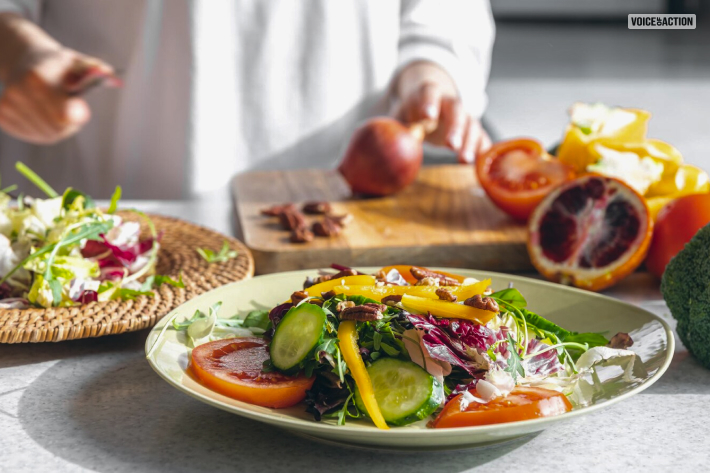
Before you know how to start a vegan diet, it is important to understand one thing.
You cannot win the ‘how to start a vegan diet’ diet game in one day!
One must set realistic objectives and expectations any time one makes a major shift in lifestyle, which also applies to the vegan diet. The transition can initially seem overwhelming, but if you keep the right mindset and approach, the new eating habit will be both lasting and rewarding.
Pay Attention to Yourself
When setting goals and expectations while moving on a vegan diet, paying attention to yourself and your limits is imperative. Be aware that every person’s body is different; what works for one person might not apply to another. Hence, it is crucial to listen to your body and, if needed, make the needed adjustments.
Take Manageable Steps
One of the approaches to start with the setting of realistic goals is to involve taking small steps. As an alternative to making radical changes overnight, try adding more sustainable meals bit by bit to your way of eating. You can start by having one meat-free day a week or substituting cow milk with plant-based alternatives like almond and oat milk in your coffee in the morning. Such small steps will make the transition less stressful and provide time to adapt to both body and mind.
Specific Goals
Additionally, it is necessary to set specifics in which you will be based rather than saying, “I want to eat healthier,” but rather, “I want to have five servings of vegetables and fruits in my meals a day,” or “I will reduce my meat intake by half.” This will give you things to work towards while keeping you accountable.
Find The Right Nutrition
Similarly, I think it is necessary to take a closer look at natural nutrition when trying Veganism. Pretty often, people are misled into thinking that all vegans lead healthy lives.
Yet, if you are undernourished you may get into bad eating habits if they do not understand their nourishment needs. To ensure adequate protein consumption, turn to tofu, beans, lentils, nuts, quinoa, greens, and whole grains for their essential vitamins and minerals, respectively.
Lastly, be easy on yourself! An important aspect of any pattern adjustment is that it takes the body and the mind some time to get accustomed to it completely. It is also alright if you make mistakes or have knockbacks in practice. The way you do it is simple. Just learn from what you have been through and never back down on your goals.
Finding support and resources
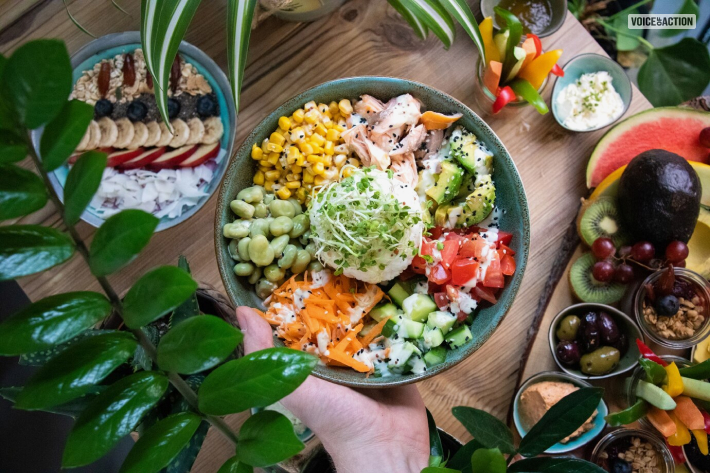
As you start your journey on how to start a vegan diet, you should find the right support.
Veganism commits you to positive changes in your life, but it can also overburden you. Since there might be several new food and meal options, you may feel like you are starting fresh when planning and cooking your meals. The great news is that there is a place you can look for to guide you in your transition to a plant-based lifestyle.
Find Online Communities
One great idea for finding support as a new vegan could be to subscribe to an online community or club devoted to Veganism. Such virtual settings also create a community and social link with individuals in self-directed plant-powered trajectories.
You can impart skills, recipes, joyful moments, and frustrations with like-minded people and expect they will be ready to give advice and support when needed. Beyond this, food connoisseur groups often provide resources like grocery lists, meal plans, and restaurant guides that are valuable in making the transition to a vegan diet more straightforward.
Find Tasty Recipes
Among the useful resources for getting through the veganism world are cookbooks or blogs on recipes for plant-based diets. Besides the fantastic recipes, these resources teach us new ways by which we can employ freshly acquired foodstuffs. Vegan cookbooks by authors like Thug Kitchen, Oh She Glows by Angela Liddon, Vegan 100 by Gaz Oakley, and BOSH! are in high demand.
Alongside books, you can also pick a few vegan applications. These handy tools cover a lot of ground. From finding nearby restaurants that are vegan-friendly to counting nutrients and making individualized lists sorted by dietary preferences.
Want A Face-to-Face Meeting?
If you are a person who actively looks for face-to-face meetings instead of virtual ones or recipes available in books or web applications, try to search local vegan meetups or take courses on plant-based cooking. A face-to-face meeting with vegans can expand your social life by creating relations with people who embody the same values and interests as you and, at the same time, acquire from their experience.
Also, relying on friends and family for much-needed support is okay. While this may sometimes seem hard, having a close circle of people around you always contributes to your success. Convey your readiness for a vegan diet to your loved one and provide them with the justifications that have informed your decision. You may be surprised at all; they may even want to join you!
So, did we cover everything about how to start a vegan diet?
If you have more to add, please do convey them in the comment section below.
More Resources:

























